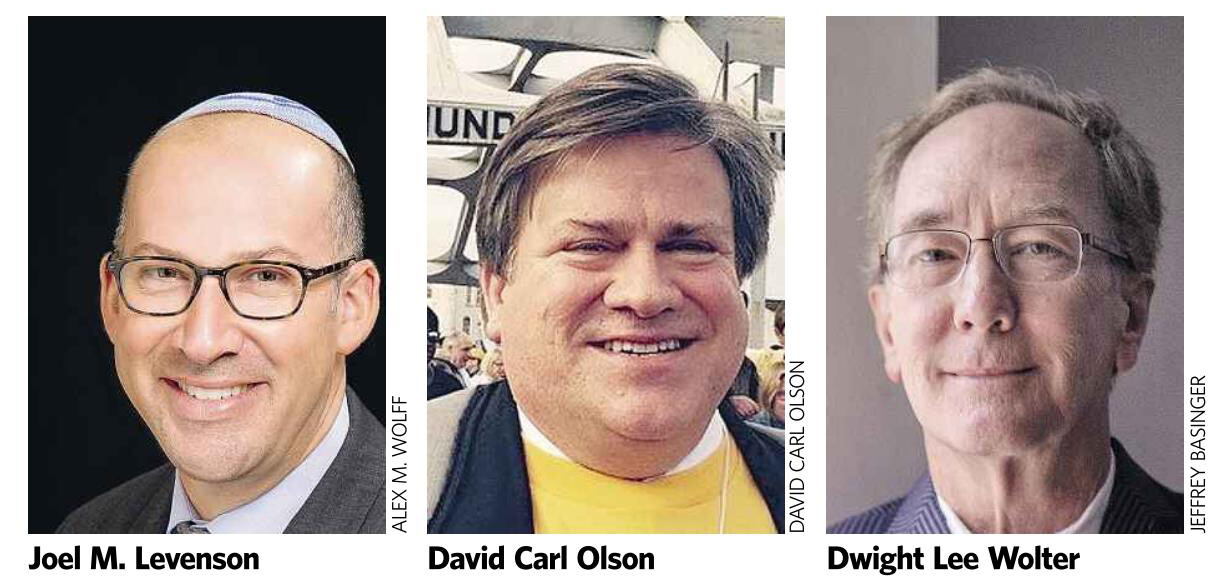
11.06.22 | Faith | by Jim Merritt
From left, Rabbi Joel M. Levenson of Midway Jewish Center, the Rev. David Carl Olson of Unitarian Universalist Congregation at Shelter Rock, and the Rev. Dwight Lee Wolter of Congregational Church of Patchogue. Credit: Alex M. Wolff; David Carl Olson; Jeffrey Basinger
Houses of worship don’t exist in a vacuum, but are often in or near communities with challenges such as food insecurity, health disparities and a lack of equal rights and opportunity. This week’s clergy discuss how they fulfill their faith’s call to public service in their neighborhoods and beyond.
The Rev. David Carl Olson
Associate minister for Congregational Life, Unitarian Universalist Congregation at Shelter Rock, Manhasset
Religion includes a call to the development of character. This happens individually through study and devotion, of course, but it is best refined congregationally through public service. Starting in the congregation, we provide a helping hand where it is needed. Then together, in ways that seek to transform, we serve by shortening the distance between our congregation and the communities where we live our public lives.
We learn to identify with the community, to know its heart — joys and woes, assets and deficits. We apply that collective character that we’ve developed. We show leadership by making stronger connections within the community and even make a civic demand. The late U.S. Rep. John Lewis, speaking atop the Edmund Pettus Bridge in Selma, Alabama, on March 1, 2020, urged us, “Get in good trouble! Necessary trouble! And help redeem the soul of America.” It is the faith that we practice — of seeing our interconnectedness and the inherent worth of each person — that allows us to engage the community not as outside agitators, but as community members and community leaders. Community members not afraid to make a little good trouble, community members willing to do our part in implementing what we demand.
